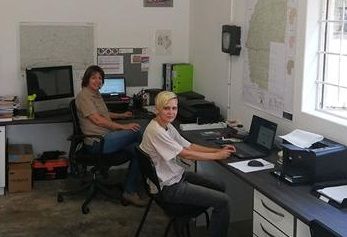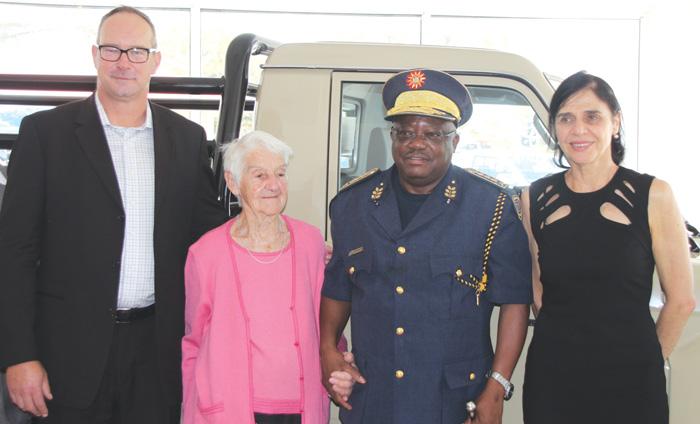
Cheetah protectors open field station in Gobabis to help farmers co-exist with wild cats and dogs

Otjiwarongo – The Cheetah Conservation Fund (CCF) has operationalised a new field station in Gobabis to serve farmers and conservationists in the Omaheke region with information and solutions to reduce conflict with free-roaming carnivores.
CCF said it has noticed an increase in incidents of conflict between farmers in the eastern regions of Namibia and cheetahs and African painted dogs. This is partially ascribed to domestic animals’ increased need to forage outside their home territories as a result of the severe drought in 2019.
“With a noticeable increase in human wildlife conflict and lethal persecution of predators, CCF has received a higher number of orphaned cubs from the Omaheke Region. Fourteen adult and orphaned cheetah cubs were brought to the CCF Centre by the Ministry of Environment and Tourism (MET) over the past three years. Some may be released into reserves, but the majority came to CCF too young and will never be released due to habituation. They will remain at the CCF Centre and be taken care of for the rest of their lives,” stated the Fund.
“During this same period, MET brought three litters of orphaned African wild dog pups from the eastern communal areas to CCF for care and rehabilitation. In the Okakarara communal conservancies and north eastern areas of the Omaheke region, farmers experience conflict with African wild dogs, which continues to be a concern as this species is critically endangered and severely persecuted and killed by farmers.”
CCF Executive Director, Dr Laurie Marker, observed “We are excited about our new field station and the support we can provide to farmers to help with the long-term survival of cheetah, African wild dogs and other carnivores that share the landscape in eastern Namibia. CCF’s Future Farmers of Africa training programmes can help with the management of livestock, wildlife and grazing land to help reduce conflict with predators.”
From the new field station, CCF will provide immediate support for farmers and implementation of its Future Farmers of Africa (FFA) training programmes along with human wildlife conflict mitigation tools. CCF teams have built relationships with farmers in this area and have begun ecological research on these carnivores to help farming communities develop a better understanding of the ability to co-exist with large carnivores.
Caption: The station is manned by Dr Hanlie Winterbach (back) and Ms Nadja le Roux.












































